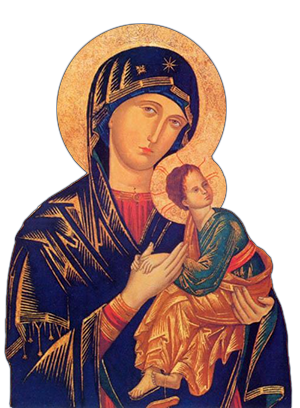Ask Father Maurice: “The Way” and the “Nazarene sect” mentioned in Acts
Father Maurice, in the New Testament we hear Jesus saying “I am the Way, the Truth and the Life.” After Jesus’s Resurrection, the Apostles were teaching and the words “the Way,” or the “Nazarene sect” are used in referencing Jesus’s teachings of the resurrection and salvation. It is not familiar to me. Does this text appear in any of the Sunday readings (A, B, C years)?
Alma
Dear Alma, the text you cited is John 14:6. Thomas had said to Jesus, “Lord, we do not know where you are going, so how can we know the way?” In response, Jesus said to Thomas: “I am the Way, the Truth and the Life. No one can come to the Father except through me.” Jesus thus establishes himself as the unique medium of relating with God.
In the Acts of the Apostles, the early followers of Jesus often described themselves as the followers of “The Way.” You can find references to “The Way” in Acts 9:2; 19:9, 23; 22:4; 24:14, 22. When Paul of Tarsus who later became St. Paul was persecuting Christians, we read in the Acts that Paul went to Damascus to arrest men and women who “belonged to the Way” (See Acts 9:2; 22:4). After Saul’s religious experience or conversion, Saul, now Paul, became a very determined and energetic preacher against those who maligned “The Way” (Acts 19:9).
When Paul is brought before Felix on trial, Paul admits that “I worship the God of our ancestors as a follower of the Way, which they call a sect” (Acts 24:14). From the Roman perspective, “The Way” was largely perceived as a sect of Judaism, rather than a separate religion.
In the initial years, Christianity had not severed its institutional link from Judaism. In all probability, the early Christians based their description of Christianity as “The Way” on Jesus’s self-description of himself as noted above, from John 14:6. And yes, the text from John 14 is used in the liturgy of the Church, not only Sundays but weekdays as well.
From the spiritual perspective, to say that Jesus is “The Way” implies that I understand the experience of Christianity on two levels: Firstly, that Christianity is a personal experience, an encounter with Jesus of Nazareth. Christianity is not about laws or precepts. Those are secondary. Christianity begins when I get to know Jesus as a friend, as someone I can share my life with, in other words, a personal relationship with Jesus as a friend, but above all, as Lord and Savior. Secondly, it means that this relationship with Jesus is what gives my life its decisive meaning and orientation.
From my encounter with Jesus, I live a different kind of life, I allow Jesus to direct me. Like St. Paul, I live, no longer for myself, but Christ lives in me. The life I live is the life of the Son of God, Christ Jesus, who died for me. The emphasis is the “for me.” Thus, and this brings us to the deeper meaning of the phrase “the Way”: Because of my relationship with Christ, the Way of my life, I am called to that character of what marks “Christ’s life,” and that is, the “for me” as the principle that guides the new life in Christ. Hence, “the Way” and “for me” are related. Just as Christ died “for me” to show me “the Way,” so too I am called to “die to me” (my ego, my selfishness, my bitterness, my anger, my perceptions and ideologies, my own subjective preferences, fixations and exclusivistic tendencies) so that I can become “the Way” for others to encounter Christ as well.
Hence, John 14:6 is both an identity and a mission statement, Alma. And just so you know, in the history of religions, only Jesus of Nazareth ever described himself like that. Thanks for asking.



